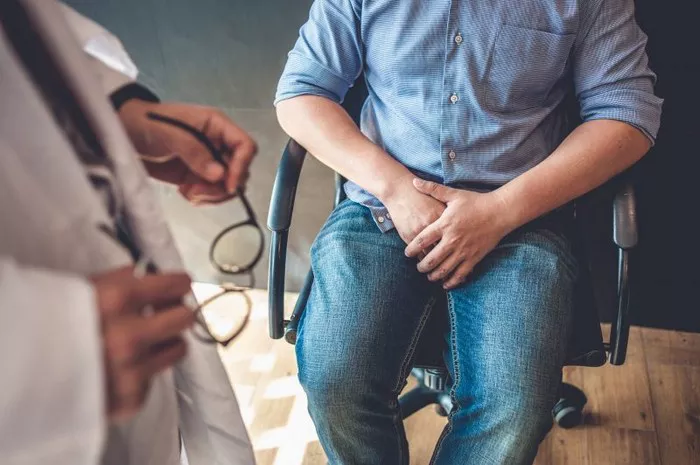Endometriosis is a chronic condition where tissue similar to the uterine lining grows outside the uterus. It can cause severe pain, heavy menstrual bleeding, and fertility issues. In some cases, endometrial-like tissue can spread to the intestines, leading to bowel-related symptoms.
Many women with endometriosis experience changes in bowel habits. These may include constipation, diarrhea, bloating, or painful bowel movements. The severity of these symptoms depends on the location of the endometrial tissue and how deeply it infiltrates the intestines.
Understanding how endometriosis affects the bowels can help patients manage their symptoms and seek appropriate treatment. Early diagnosis and proper care can improve quality of life and prevent complications.
Why Does Endometriosis Affect the Bowels?
Endometrial Tissue Outside the Uterus
Endometrial-like tissue can grow on or near the intestines. The body responds by triggering inflammation, which can lead to swelling and pain. This misplaced tissue behaves like normal uterine lining, thickening and shedding during each menstrual cycle. However, because it has no way to exit the body, it remains trapped, causing irritation and discomfort.
Inflammation and Swelling
Chronic inflammation in the pelvic area can affect bowel function. Inflammation can cause bloating, pain, and difficulty passing stool. The intestines may become sensitive, leading to alternating episodes of constipation and diarrhea.
Adhesions and Scar Tissue
Over time, endometriosis can cause scar tissue to form. These adhesions can stick the intestines to other organs, making normal bowel movements difficult. Scar tissue can also create blockages, leading to severe constipation or incomplete bowel movements.
Common Bowel Symptoms of Endometriosis
Painful Bowel Movements
Many women with endometriosis experience pain during bowel movements, especially during their menstrual period. The pain may be sharp, cramp-like, or feel like pressure in the lower abdomen.
Constipation
Scar tissue and inflammation can slow down bowel movements, leading to constipation. Some women may struggle to pass stool, even when eating a fiber-rich diet.
Diarrhea
Others may experience frequent, loose stools. Inflammation can make the intestines more sensitive, triggering diarrhea. This symptom often worsens during menstruation.
Bloating and Gas
Bloating is a common symptom of endometriosis. It can make the abdomen feel swollen and tight. Gas buildup may also cause discomfort, leading to cramping and pain.
Rectal Bleeding
In rare cases, endometrial-like tissue can invade the walls of the intestine. When this happens, some women may notice blood in their stool, especially during their menstrual period.
How Does Endometriosis Affect Different Parts of the Bowel?
Small Intestine Involvement
When endometriosis affects the small intestine, it can lead to bloating, cramping, and food sensitivities. Some women may experience nausea or discomfort after eating.
Colon and Large Intestine
Endometriosis in the colon can cause more severe bowel symptoms. Women may experience alternating constipation and diarrhea. In some cases, the colon may become partially blocked, leading to painful bowel movements.
Rectum and Lower Bowel
When endometriosis affects the rectum, women may feel pressure or fullness in the lower abdomen. They may also experience sharp pain when passing stool. Rectal bleeding is rare but possible.
Diagnosing Bowel Endometriosis
Medical History and Symptoms
A doctor will ask about symptoms, including bowel habits and menstrual pain. Keeping a symptom journal can help track changes and identify patterns.
Pelvic Exam
During a pelvic exam, a doctor may check for tenderness or abnormal growths near the intestines. This can help determine if further testing is needed.
Imaging Tests
Ultrasound and MRI scans can help detect endometriosis on the intestines. These tests provide detailed images of the pelvic organs and bowel.
Colonoscopy
If rectal bleeding is present, a colonoscopy may be necessary. This test examines the inside of the intestines to rule out other conditions like inflammatory bowel disease (IBD).
Treatment Options for Bowel Symptoms
Pain Management
Over-the-counter pain relievers, such as ibuprofen, can help reduce inflammation and discomfort. For severe pain, a doctor may prescribe stronger medications.
Hormonal Therapy
Hormonal treatments, such as birth control pills or progesterone therapy, can help slow the growth of endometrial tissue. This may reduce bowel symptoms.
Diet and Lifestyle Changes
Some women find relief by adjusting their diet. Avoiding trigger foods, such as dairy, gluten, and processed foods, may help reduce bloating and discomfort. Drinking plenty of water and eating fiber-rich foods can also support healthy digestion.
Surgical Treatment
In cases where bowel endometriosis causes severe pain or blockages, surgery may be necessary. A surgeon can remove endometrial tissue from the intestines while preserving as much healthy tissue as possible.
Living with Bowel Endometriosis
Monitoring Symptoms
Keeping track of symptoms can help women understand their triggers and seek timely treatment. Writing down changes in bowel habits, pain levels, and dietary reactions can be helpful.
Seeking Support
Living with endometriosis can be challenging. Support groups, counseling, and connecting with others who have the condition can provide emotional relief.
Regular Medical Check-Ups
Seeing a doctor regularly can help manage symptoms and prevent complications. A healthcare provider can recommend treatments based on symptom severity.
Conclusion
Endometriosis can significantly impact bowel function. It may cause pain, bloating, constipation, or diarrhea. These symptoms often worsen during menstruation due to hormonal changes and inflammation.
Understanding how endometriosis affects the bowels is essential for managing symptoms. Treatments such as pain relievers, hormonal therapy, and dietary changes can help improve bowel function. In severe cases, surgery may be necessary to remove endometrial tissue.
Seeking medical advice and making lifestyle adjustments can help women live more comfortably with bowel endometriosis. Consulting a doctor for proper diagnosis and treatment is crucial for long-term health and well-being.
Related topics:

























